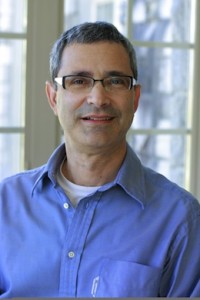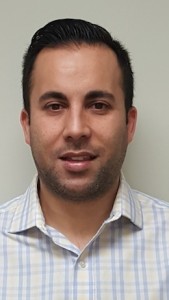In commemoration of the 50th anniversary of the Nostra Aetate, the Canadian Conference of Catholic Bishops (CCCB) and the Canadian Rabbinic Caucus (CRC) committed last year to engage in “shared and sincere dialogue.”
Passed at the Second Vatican Council in 1965, the Nostra Aetate covers the Catholic Church’s relationship with non-Christians. Among other points, the fourth section affirms Christianity’s Jewish roots, states that Jews should not be blamed for Jesus’ death and decries antisemitism. The joint declaration of CCCB and CRC, issued on Nov. 25, referred specifically to that fourth section, “which profoundly changed Catholic-Jewish relations.”
The first national, bilateral dialogue between Catholics and Jews in Canada also took place on Nov. 25, in Ottawa. The joint initiative was launched the next day. It has several goals, including the strengthening of ties and increased understanding between the Catholic and Jewish communities; opposing “antisemitism and all forms of hatred”; advancing common interests in public policy, in areas such as social justice and religious freedom; and promoting civic engagement among Canadian Jews and Catholics.

The Jewish delegation to the dialogue comprises Dr. Robert Daum, Rabbi Baruch Frydman-Kohl, Dr. Victor Goldbloom, Rabbi Reuben Poupko, Dr. Adele Reinhartz and Dr. Norman Tobias, while the Catholic delegation is Bishop John A. Boissonneau, Archbishop Paul-André Durocher, Sister Anne Anderson, Father Martin Moser, Sister Eileen Schuller and Father Hervé Tremblay.
“Jews must recognize that contemporary Catholicism was profoundly changed by Vatican II and that the historic denigration and demonization of Jews has been eliminated from Catholic teaching,” said Frydman-Kohl, co-chair of the CRC – with Rabbi Jonathan Infeld and Rabbi Reuben Poupko – in a Nov. 26 statement about the dialogue. “Catholics must comprehend that contemporary Jews and Judaism can only be understood through the twin experiences of the horrors of the Holocaust and the creative existence of the state of Israel. While differences between our two faith communities still exist, we have moved from disputation to dialogue, persecution to partnership, and confrontation to cooperation.”
“The initiative represents a very serious commitment on the part of the CCCB and of the CRC, and of the individual delegates who will be meeting twice a year for the next few years,” said Daum, a fellow, diversity and innovation, Simon Fraser University’s Centre for Dialogue, and an honorary associate professor, department of classical, Near Eastern and religious studies, University of British Columbia. “I am sure that none of us would have agreed to undertake this work without an expectation that the process would make a contribution to Canadian society.”
CRC is an affiliate of the Centre for Israel and Jewish Affairs. “As faith communities active in public policy and public discourse, we have a responsibility to speak out against manifestations of hatred in society,” said Nico Slobinsky, director of CIJA Pacific Region. “Our voice is stronger when we speak out together.”

Slobinsky noted that CRC and CCCB wrote a letter, dated Dec. 15, to Minister of Foreign Affairs Stéphane Dion, highlighting that “Christians experience religious persecution more than any other faith group on a global scale and in absolute numbers” and requesting that the “Government of Canada make a priority of advocating for at-risk Christian communities throughout the Middle East and Africa.”
He said CIJA has been “adamant in speaking for the right of religious minorities when threatened.” He described the “range of policies CIJA advocates on, from affordable housing to government support for health care and public services run by Jewish social service agencies,” and said he can see “natural areas of cooperation with faith communities like the Catholic community.”
“In the case of antisemitism,” he added, “given the sad history of Catholic discrimination and persecution of Jews, it is particularly poignant that Catholics condemn and actively counter antisemitism today, as evidenced in the pope’s recent remarks,” which continue the path of reconciliation that started at the Second Vatican Council.
Slobinsky said the Nostra Aetate “has had a profound impact within the Church leadership and clergy, though it is largely unknown by average Catholics and Jews.”
Daum described it as “a very important document. Because of that document, for example, I worked for the American Jewish Committee and the Roman Catholic Diocese of San Francisco for three years when I was working on my PhD at Berkeley. I was a guest lecturer on the topic of Judaism in five Roman Catholic high schools, so that the students could have the opportunity to learn about Judaism from a Jewish scholar.
“Like any historic document, the impact will vary from place to place, and from decade to decade, but one has to bear in mind that this relationship goes back many centuries. And there have been some very important statements issued by Jewish and Roman Catholic scholars over the past several years, including in recent months. These are related developments, which is very encouraging and very interesting.”
As for the dialogue initiative, Daum said, “We are bringing ourselves to this initiative as Jews and as Canadians, and our dialogue partners are bringing themselves as Catholics and as Canadians – in our diversity and in our unity, we will get to know each other and each other’s community better with each meeting.”
Zach Sagorin is a Vancouver freelance writer.
